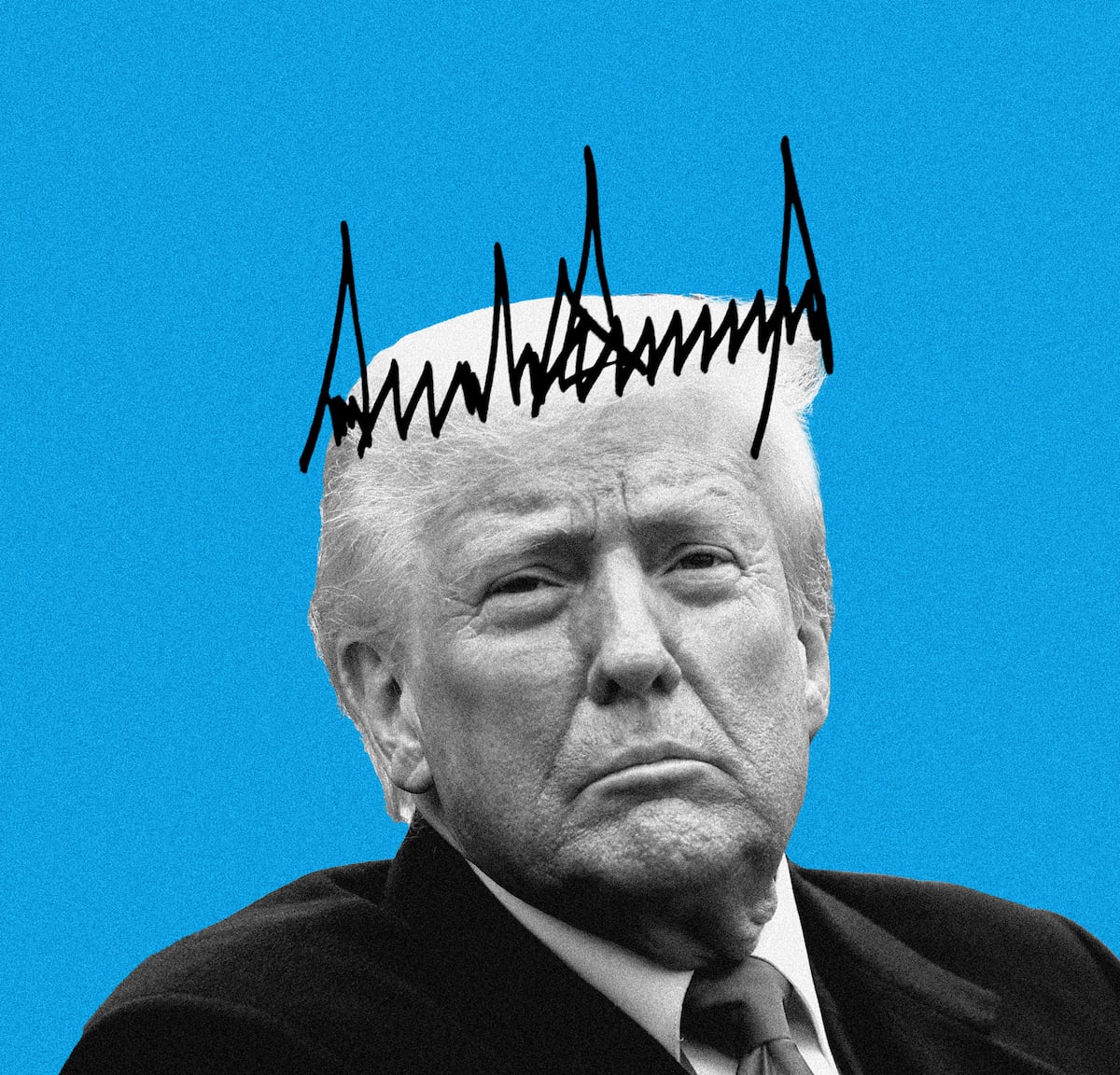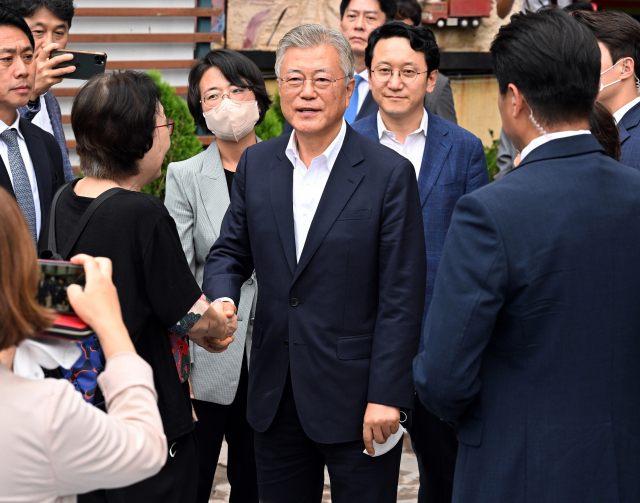Trump’s 2025 Tariff War: A U.S. Viewpoint on Global Fallout and Potential Responses
By Archyde News journalist
Published: April 5, 2025
Donald Trump’s tariff policies in early April 2025 triggered significant market instability, raising concerns about the long-term economic and geopolitical consequences. This article examines the potential motivations behind these actions, analyzes the impact on American businesses and consumers, and explores possible responses from the European Union and other global partners.
The Unfolding Trade Conflict: More Than Just Economics
The market turmoil witnessed this week underscores the destructive potential of what many are calling Donald Trump’s “tariff war.” the seemingly impulsive nature of these actions, originating from the white House, has sparked widespread concern about the potential for severe damage on a global scale, particularly for American businesses. The challenge lies in deciphering a coherent rationale behind these policies, which in turn complicates the development of an effective counter-strategy.
It’s crucial to recognize that this isn’t solely about economics. As previously reported, It is just a part of the world order subversion project that Trump is carrying out.
This perspective frames the issue as a essential shift in U.S. strategy, one that seemingly disregards established alliances and the principles of a globalized world.
For U.S. readers, this translates to uncertainty for businesses reliant on international supply chains. Consider, for example, the automotive industry, which depends heavily on imported parts. Tariffs on these components could drive up production costs, leading to increased prices for consumers or reduced profit margins for manufacturers. Similarly, American farmers, who rely on export markets for crops like soybeans and corn, could face significant losses if other countries retaliate with their own tariffs on U.S. agricultural products.
The European response: Unity and Strategic Calculation
this shift in U.S. strategy presents a significant challenge for Europe, demanding a fundamental adaptation. Success hinges on two key factors: a strong unified front and a meticulous assessment of the potential ripple effects of any actions taken in response. Firmness must be coupled with patience and careful consideration to avoid rash decisions and inflammatory rhetoric.
Appeasement, though, is not the answer.The EU must respond with vigor to the Trumpist commercial war.
One proposed strategy involves activating the economic anti-coercion instrument, which would allow the European Commission to propose measures extending beyond traditional trade in goods. This is particularly relevant as the EU’s surplus with the U.S. limits its leverage in that area. Acting in the services sector, where the U.S. has deficits, could prove more effective.
However, achieving the necessary qualified majority to implement such measures is not guaranteed, especially if Italy opposes. Securing their approval is crucial. Together, exploring avenues for dialogue with Washington remains essential. A period of chaos and self-inflicted damage, for which Trump cannot blame europe, could increase pressure on the White House and open pathways for resolution. The ultimate goal is to reverse the damage, not to escalate the conflict in a way that preserves perceived honor but causes further economic harm.
The implications for U.S. businesses are clear: escalating trade tensions with the EU could lead to retaliatory tariffs on American goods and services, further disrupting international trade and potentially harming the U.S. economy.
Beyond Retaliation: Building New Alliances and Strengthening the Common Market
The response cannot solely rely on retaliatory measures. Equally significant are proactive steps to forge new partnerships and deepen existing relationships with other countries and blocs. The European Commission is already actively pursuing these avenues.
Furthermore, prioritizing the completion of the common market is crucial, overcoming the fragmentation caused by individual national interests that hinder its full potential. For U.S. companies operating in Europe, a more integrated and efficient common market would offer significant benefits, reducing trade barriers and streamlining regulatory processes.
Security Considerations and Transatlantic Relations
The issue of European security, with its continued heavy reliance on the U.S., cannot be ignored. There is little doubt that Trump could leverage this dependence as a bargaining chip in the trade dispute. Ethical considerations may not prevent him from using this leverage, potentially exposing Europe to significant risks. Amidst the trade turmoil, U.S. Secretary of State Marco Rubio, has not hesitated to claim NATO allies to spend 5% of GDP
on defense, an exorbitant demand even within the context of strengthening European defense capabilities.
This demand highlights the potential for the trade conflict to spill over into other areas of transatlantic relations, including security cooperation.For the U.S., maintaining strong alliances is crucial for addressing global challenges, and undermining these alliances through trade disputes could have far-reaching consequences.
A Path Forward: Reason over Outrage
a measured response does not imply passivity in the face of abusive actions. Instead, it requires acting with cool-headed reason rather than succumbing to the understandable outrage felt by many Europeans. The path ahead is undoubtedly turbulent, but the EU has a history of overcoming seemingly insurmountable crises.
Throughout these challenges, the EU has consistently recognized its potential when acting collectively and the necessity of its own survival as a champion of diversity and well-being for its citizens, despite its inherent challenges and shortcomings. Unity and political intelligence are now more vital than ever to successfully navigate the Trumpist challenge.
For U.S. readers, this underscores the importance of diplomacy and international cooperation in resolving trade disputes. A collaborative approach, based on mutual respect and a willingness to compromise, is essential for preserving global economic stability and fostering strong transatlantic relations.
How might teh long-term implications of these tariffs change the world trade order?
Interview: Navigating Trump’s Tariff War – A Conversation with Dr. Eleanor Vance
Published by Archyde News
Introduction
Archyde News welcomes Dr. Eleanor Vance, a leading expert in international trade and economics, to discuss the implications of Donald trump’s recent tariff policies. Dr. Vance, a senior fellow at the Global Trade Institute, offers valuable insights into the unfolding “tariff war” and its impact on global economics and transatlantic relations.
The Motivations Behind the Tariffs
Archyde News: Dr. Vance, many are struggling to understand the motivations behind these new tariffs. Beyond economics, what do you see driving these policies?
Dr. Vance: Thank you for having me. Several factors seem to be at play. It’s not solely an economic decision.From the facts available, it truly seems like a move to assert U.S. dominance and possibly disrupt the existing world order.There’s also a strong emphasis on protecting certain domestic industries,though the long-term effectiveness of that strategy is debatable.
Impact on American Businesses and Consumers
Archyde News: How are American businesses and consumers likely to be affected immediately and in the long term?
Dr. vance: The immediate impact includes increased costs for businesses reliant on imported goods, particularly those with intricate supply chains in sectors like automotive and tech.Consumers will likely see price increases. Long-term, these tariffs, along with potential retaliatory tariffs from the EU and other partners, could damage the U.S. economy, reducing exports and leading to job losses.
the European Response: Unity and Strategy
Archyde News: The article highlights concerns about the EU’s response. What strategies do you believe the EU shoudl prioritize?
Dr. Vance: The EU’s approach needs to be multifaceted. Unity is paramount; a fragmented response will be ineffective, allowing Washington to play member states against each other. Thay should explore using tools like the economic anti-coercion instrument to counter unfair measures and pursue new partnerships, especially in areas where the U.S.has notable trade deficits. They also need to deepen their own common market integration.
Security Concerns and Transatlantic Relations
Archyde News: The piece touches on the link between trade and security. How significant is this, and what potential consequences could arise?
Dr. vance: This is a crucial and potentially destabilizing area. Trump might leverage European reliance on U.S. security guarantees as a bargaining chip in trade negotiations. Demands like the Sec. of State’s push for 5% of NATO GDP on defense spending demonstrate an interest in that as well. This could fracture transatlantic relationships and impact collective responses to global challenges.
A path Forward & Advice For Readers
Archyde News: Looking ahead, what is your advice for the EU and the U.S. on navigating this situation?
Dr. Vance: Both sides should prioritize diplomacy and reasoned dialog. For the EU,unity and strategic partnerships are essential. for the U.S., recognizing the value of international cooperation and the damage caused by disrupting trade and security alliances is paramount. It is the ideal time to consider these actions.
Final Thoughts
Archyde News: Dr. Vance, thank you for your valuable insights. Your analysis highlights the complex challenges of this “tariff war.” Many of our readers will be affected. For readers on both sides of the Atlantic, what is a basic piece of advice you would offer?
Dr. Vance: Prioritize accurate information and critical thinking. Avoid succumbing to outrage or the easy path of confirmation bias. Study the history of trade disputes and their impact on relationships and economies. Understand the long-term implications of these actions, as the world trade order as we understand it could change dramatically as the result of the events.
Reader Engagement
Archyde News: We invite our readers to share their thoughts and perspective on this critical issue. What do you think is the most significant long-term result of these tariffs?
Please share and leave your thoughts below.





7.png)


